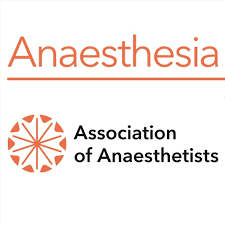Power loss risks prompt FDA Class 1 recall designation for heart pump accessories

Editor's Note Sudden, unexpected shutdown and restart prompted the US Food and Drug Administration (FDA) to designate a class 1 recall—the most severe category reserved for serious risk of injury or death—for Abbot’s HeartMate Mobile Power Unit, which powers system controllers for the HeartMate 3 Left Ventricular Assist System (LVAS)…
Study: Colibactin-producing gut bacteria fuel colorectal cancer surge

Editor's Note Research published in Nature reveals that DNA damage caused by colibactin-producing gut bacteria is far more prevalent in younger patients with colorectal cancer, NBC News reports, suggesting a key factor behind the disturbing rise in cases among people under 40. According to the April 23 article, researchers from…
Study: GLP-1 drugs heighten risk of gastric residue but not perioperative pulmonary aspiration

Editor's Note Taking GLP-1 receptor agonists before anesthesia increases the risk of residual gastric contents, but evidence is lacking for a corresponding increase in perioperative pulmonary aspiration risk, according research published April 15 in the journal Anaesthesia. The systematic review and meta-analysis analyzed 28 observational studies involving over 466,000 patients…
Low-cost blood test predicts cardiovascular event risk

Editor's Note A low-cost blood test for troponin, a protein released during heart muscle damage, significantly improves long-term risk prediction for heart attacks and strokes—especially in patients with intermediate cardiovascular risk, according to an April 7 report from News-Medical.Net. The findings, based on a large-scale international study led by the…
Medication vial coring incidents prompt patient safety concerns
Editor's Note Safety organizations are raising concerns amid increased reports of improper needle use causing vial coring, leading to potential contamination and patient risk. Published April 4 by the Anesthesia Patient Safety Foundation (APSF) and ECRI/Institute for Safe Medicine Practices (ISMP), the alert offers interim guidelines to reduce risks associated…
Nurse-coordinated care reduces long-term heart risks after acute coronary syndrome

Editor's Note A nurse-coordinated prevention program significantly lowered the long-term risk of major adverse cardiovascular events (MACE) in adults recovering from acute coronary syndrome (ACS), according to an April 2 article in Healio. The program, which focused on lifestyle and behavioral changes, led to a 30% reduction in adverse events,…
Study: No significant link between GLP-1 drugs, postoperative aspiration pneumonia

Editor's Note Preoperative use of GLP-1 receptor agonists was not significantly associated with an increased risk of aspiration pneumonia or acute respiratory failure after surgery, according to a March 4 report in MedPage Today. The article focuses on a retrospective cohort study of over 366,000 surgical patients found no meaningful…
Study: Implicit bias linked to low-value vascular procedures, worse outcomes for Black patients

Editor's Note Reducing the negative influence of implicit bias requires system-level interventions to ensure procedures align with best practices for all patients, according to results of new research on outcomes for vascular surgery patients. Published February 26 in JAMA Surgery, the study showed that implicit racial bias among vascular specialists…
Medical gaslighting tops ECRI’s 2025 patient safety threat list

Editor's Note Misdiagnosis, delayed treatment, and a breakdown of trust in healthcare can all result from time and resource constraints preventing proper engagement with patients—a concern that tops ECRI’s list of the most significant patient safety risks for 2025. As detailed in the global healthcare safety nonprofit’s March 10 announcement,…
AI models improve prediction of surgical complications using preoperative clinical notes

Editor’s Note Large language models (LLMs) outperformed traditional methods in predicting postoperative complications, according to a study on artificial intelligence (AI) in perioperative risk assessment published February 11 in the journal Nature. Results indicate AI-driven models could enhance patient safety and streamline clinical workflows by detecting complications earlier. Researchers analyzed…

 Free Daily News
Free Daily News